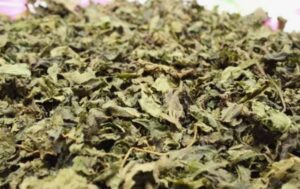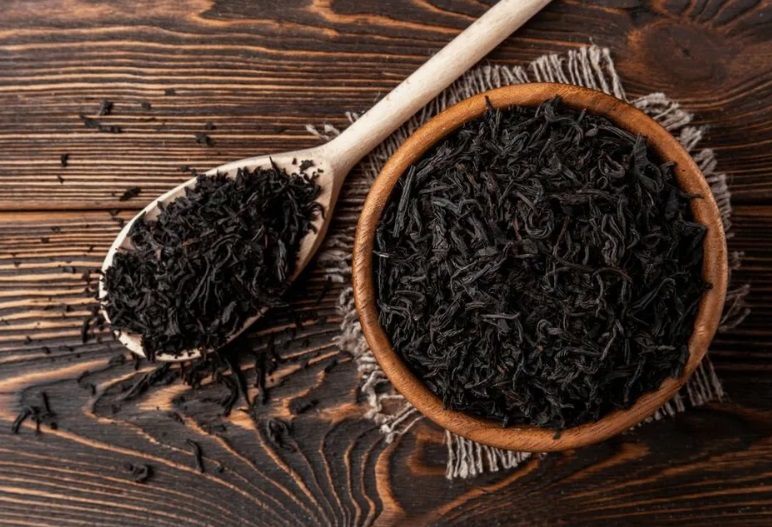What is Nettle, Where Does it Grow? Benefits, Uses, and Health Advantages
Nettle, often referred to as ‘stinging nettle’ (scientific name *Urtica dioica*), is a perennial herbaceous plant known for its tiny, hair-like structures along the stems and leaves that can cause a stinging sensation when touched. Though it’s infamous for its sting, this versatile plant has been used for centuries in traditional medicine, cooking, and even textile production. Its rich nutrient content and medicinal properties have made it a popular choice in holistic health practices.
### **Where Does Nettle Grow?**
Nettle is native to Europe, Asia, and North Africa, but it has since spread across the globe, thriving in temperate regions. It grows abundantly in nutrient-rich soil and moist environments such as forests, riverbanks, roadsides, and meadows. You are likely to find nettle plants in areas with partial to full sunlight and disturbed soils, making it a common ‘weed’ in backyards, farms, and gardens.
While nettle may appear as an invasive plant due to its prolific growth, it is an incredibly valuable botanical that has earned its place in herbal medicine and sustainable living practices.
—
### **Nettle’s Benefits**
Nettle has long been utilized for its wide range of benefits, from medicinal and nutritional properties to its practical applications. Here’s a look at the primary categories where nettle stands out:
#### **1. Nutritional Powerhouse**
Nettle leaves are packed with essential nutrients. They are rich in vitamins (A, C, K, and several B vitamins) and minerals such as iron, calcium, magnesium, and potassium. Nettle leaves also contain a significant amount of protein, fiber, and amino acids, making them an excellent addition to a well-rounded diet.
#### **2. Medicinal Benefits**
In herbal medicine, nettle has been celebrated as a remedy for various ailments, including:
– **Anti-inflammatory properties:** Nettle is commonly used to alleviate inflammation, particularly in conditions like arthritis, gout, and joint pain.
– **Allergy relief:** The plant is known for its natural antihistamine properties, which may help reduce symptoms of hay fever and seasonal allergies.
– **Urinary health:** It root has been traditionally used to support urinary tract health and address symptoms of an enlarged prostate (benign prostatic hyperplasia or BPH).
– **Immune support:** Due to its rich antioxidants, nettle helps strengthen the immune system and combat free radicals in the body.
– **Blood health:** Its high iron content makes it beneficial for anemia or low energy caused by iron deficiency, while its blood-purifying qualities have been used to promote detoxification.
#### **3. Skincare & Hair Health**
Nettle is highly regarded in the beauty world for its benefits to skin and hair:
– The anti-inflammatory and astringent properties of nettle make it effective for soothing skin irritations like eczema, acne, and dermatitis.
– It is often used to strengthen hair, reduce dandruff, and stimulate hair growth by improving blood flow to the scalp.
#### **4. Sustainability & Textiles**
Historically, nettle fibers were used to make fabric, particularly during times of shortage, such as during World War I. Today, nettle is being revisited as a sustainable alternative to conventional textiles because it grows quickly and requires minimal resources.
—
### **Where and How Can You Use Nettle?**
Because of nettle’s versatility, it can be used in a variety of everyday applications. Whether consumed as food or used in a beauty regimen, nettle offers practical and effective solutions.
#### **1. Culinary Uses**
While fresh nettle should be handled with care due to its stinging hairs, cooking, steaming, or drying the leaves neutralizes the sting, making it safe to consume. Here are ways to use nettle in food:
– **Teas and infusions:** Dry nettle leaves can be steeped in hot water to make a nutritious herbal tea.
– **Soups and stews:** Nettle is often added to soups and broths as a spinach substitute.
– **Smoothies:** Add steamed nettle leaves to your smoothie for a nutrient-rich boost.
– **Pesto:** Replace basil with nettle leaves in traditional pesto recipes for an earthy, nutrient-dense variation.
#### **2. Herbal Remedies**
It is a staple in herbal medicine. It can be consumed as tea, taken as a tincture, or used as an extract in supplements. Nettle capsules and powders are also widely available in health food stores.
#### **3. Skincare Applications**
It is found in various skincare products such as creams, shampoos, and tonics. It can be used topically by creating an infusion and applying it to irritated skin or the scalp.
#### **4. Gardening**
Nettle leaves and stems can be used to make a nutrient-rich fertilizer or compost tea for plants. Its high nitrogen content makes it a great natural fertilizer for a thriving garden.
—
### **Health Benefits of Nettle**
The science-backed and anecdotal health benefits of it are impressive. Here are some of the standout advantages:
#### **1. Reduces Inflammation**
The anti-inflammatory compounds in nettle make it an excellent choice for managing chronic conditions such as arthritis, asthma, and inflammatory skin conditions.
#### **2. Promotes Detoxification**
Nettle is a natural diuretic, helping the body flush out excess toxins and fluids, which supports liver and kidney health.
#### **3. Supports Healthy Blood Sugar Levels**
Preliminary studies suggest that nettle may help regulate blood sugar levels, making it a beneficial herb for individuals with diabetes or prediabetes.
#### **4. Boosts Energy and Combats Fatigue**
Thanks to its high iron, magnesium, and vitamin C content, it can help address anemia and enhance energy levels, combatting fatigue and sluggishness.
#### **5. Balances Hormones**
Nettle’s adaptogenic properties may support the balance of hormones, especially in individuals going through hormonal changes such as menopause or puberty.
#### **6. Strengthens Bones**
The calcium and magnesium content in nettle makes it a great herb for promoting healthy bones and preventing osteoporosis.
—
### **Precautions When Using Nettle**
Despite its many benefits, nettle should be used with caution. Some people may experience allergic reactions or stomach upset. Pregnant women should consult their healthcare provider before taking nettle, as it may stimulate uterine contractions. Additionally, if you are on medications, especially diuretics, blood thinners, or diabetes drugs, consult a healthcare professional to avoid interactions.
—

Beyond the Sting: Discovering the Culinary Versatility and Health Benefits of Nettle
Nettle, often recognized for its stinging leaves, is much more than just a garden nuisance. In fact, it’s a nutritional powerhouse and a versatile ingredient with a long history of culinary and medicinal use. Once properly prepared to remove the sting, nettle transforms into a delicious and healthy addition to a variety of dishes. Let’s explore the practical applications of nettle in the kitchen, the dishes it enriches, and the remarkable health benefits it offers.
Nettle in the Kitchen: From Foraging to Feasting
The key to enjoying nettle lies in neutralizing its stinging hairs. This is easily achieved through cooking, drying, or blending. Once processed, nettle loses its sting and releases a subtle, earthy flavor often compared to spinach.
Practical Dishes Featuring Nettle:
Nettle Soup: Perhaps the most classic nettle dish, this vibrant green soup is a comforting and nourishing option. Simmering nettle with potatoes, onions, and vegetable broth creates a creamy, flavorful soup. A touch of cream or yogurt can be added for extra richness.
Nettle Pesto: A twist on the traditional basil pesto, nettle pesto offers a unique earthy flavor. Simply blanch the nettle leaves, then blend them with garlic, pine nuts, Parmesan cheese, and olive oil. Use it on pasta, sandwiches, or as a spread.
Nettle Tea: Dried nettle leaves make a refreshing and healthy tea. Throw the dried leaves into boiled water and let it brew for about 7 minutes on low heat. Enjoy. Nettle tea is known for its cleansing and revitalizing properties.
Nettle Risotto: Substitute spinach with blanched and chopped nettle in your favorite risotto recipe for a nutritional boost and a distinctive flavor. The earthy notes of nettle complement the creamy texture of risotto perfectly.
Nettle Frittata or Omelette: Add cooked nettle to your frittata or omelette mix for a healthy and flavorful breakfast or brunch option. The nettle adds a subtle earthiness that pairs well with eggs and cheese.
Nettle and Cheese Tart: Combine cooked nettle with ricotta cheese, eggs, and seasonings, then bake in a pastry shell for a savory and satisfying tart.
Nettle Smoothie: Add a handful of blanched nettle to your favorite smoothie recipe for an extra dose of vitamins and minerals. The flavor of the nettle is easily masked by fruits and other ingredients.
For Which Dishes is Nettle Best Suited?
Nettle’s earthy, slightly sweet, and somewhat spinach-like flavor lends itself well to dishes where greens are typically used. Consider it a substitute or complement for spinach, kale, or other leafy greens in:
Soups and stews: Nettle adds depth and nutrients to vegetable-based broths.
Pasta dishes: Whether in pesto, sauces, or simply cooked and tossed with pasta, nettle brings a unique character.
Egg dishes: Its subtle flavor enhances omelets, frittatas, and quiches.
Savory pies and tarts: Nettle adds a nutritional boost and earthy flavor to fillings.
Side dishes: Sautéed or steamed nettle makes a healthy and flavorful side dish.
Health Benefits: A Nutritional Powerhouse
Beyond its culinary versatility, nettle boasts a remarkable array of health benefits. It’s a rich source of vitamins A, C, and K, as well as minerals like iron, calcium, magnesium, and potassium.
Anti-inflammatory Properties: Nettle contains compounds that may help reduce inflammation in the body, potentially relieving symptoms of conditions like arthritis.
Rich in Antioxidants: Nettle is packed with antioxidants that protect cells from damage caused by free radicals, potentially reducing the risk of chronic diseases.
Improved Bone Health: The high levels of calcium and vitamin K in nettle contribute to strong and healthy bones.
Blood Sugar Regulation: Some studies suggest that nettle may help regulate blood sugar levels, making it beneficial for individuals with diabetes or pre-diabetes.
Allergy Relief: It has been traditionally used to alleviate allergy symptoms, such as sneezing, itching, and runny nose.
Cold and Flu Cures: Traditionally, it has been used to help alleviate symptoms of colds and flu, likely due to its high vitamin C content and anti-inflammatory properties. Nettle tea, in particular, can be soothing for a sore throat.
Important Considerations:
Harvesting: Always wear gloves when handling fresh nettle to avoid stings. The best time to harvest it is in the spring when the leaves are young and tender.
Preparation: Cooking, drying, or blending nettle eliminates the stinging hairs. Blanching the leaves in boiling water for a minute or two is a common method.
Potential Interactions: While generally safe, nettle can interact with certain medications, such as blood thinners and diuretics. Consult with your doctor before consuming nettle if you are taking any medications.
In conclusion, nettle is a foraged gem brimming with culinary potential and remarkable health benefits. From soothing soups to flavorful pestos, nettle offers a unique and nutritious way to add a touch of wildness to your diet. By understanding how to properly prepare and utilize this often-overlooked ingredient, you can unlock its full potential and enjoy the many rewards it has to offer. So, next time you encounter a patch of nettles, remember that beyond the sting lies a world of culinary and health possibilities waiting to be explored.
### **Conclusion**
Nettle, despite its unassuming appearance and notorious sting, is an incredibly useful plant with a long history of medicinal, culinary, and practical applications. From reducing inflammation to boosting immunity and supporting overall wellness, nettle is a nutritional powerhouse that shouldn’t be overlooked. Whether sipping nettle tea, adding it to your favorite recipes, or using it in your skincare regimen, this humble plant offers a treasure trove of health benefits for those willing to embrace its sting.
You can read below writings
The Humble Onion: A Culinary Staple with Remarkable Benefits
What is White Cabbage and Where Does it Grow
What is Coffee and Where Does It Grow
Lemon: The Tangy Wonder – Benefits, Uses, and More






